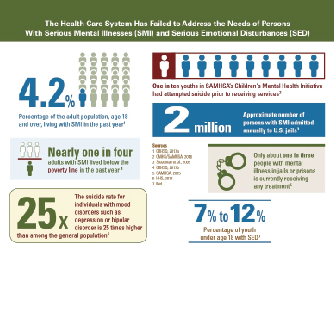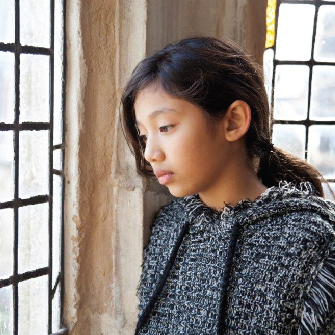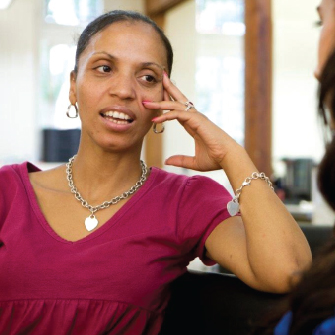MFP
E-Newsletter
MINORITY FELLOWSHIP E-NEWSLETTER | MARCH 2018- IN THIS ISSUE
- Main Page P1
- The Woman Who Uncovered
Historical Trauma P2 - Treatment for Dually Diagnosed Patients P4
- New Committee to Address Serious Mental Illness P5
- SAMHSA Is Always Looking for Peer Reviewers P6
- News and Views P6
- Professional Development Opportunities (Conferences, Calls for Papers, Trainings) P7
- Justice-Involved Youths With Behavioral Health Problems P8
- Talking About Suicide Must Not Be Taboo P9
NOTABLE
QUOTE
“I raise up my voice—not so I can shout but so that those without a voice can be heard.”
—Moulala Yousafzai
LET'S HEAR FROM YOU
Do you have an idea for an article, or would you like to contribute one? Please send your comments and story ideas to MFPenews@dsgonline.com
Minority Fellowship Enews is a product of the Minority Fellowship Program Coordinating Center (SAMHSA contract no. HHSS 2832–0120–0037i) and serves the Substance Abuse and Mental Health Services Administration, its MFP Grantees, and the MFP Grantees' Fellows and Alumni.
The views, opinions, and content of this publication are those of the authors and do not necessarily reflect the views, opinions, or policies of SAMHSA or the U.S. Department of Health and Human Services.
Do you have an idea for an article, or would you like to contribute one? Please send your comments and story ideas to MFPenews@dsgonline.com
Minority Fellowship Enews is a product of the Minority Fellowship Program Coordinating Center (SAMHSA contract no. HHSS 2832–0120–0037i) and serves the Substance Abuse and Mental Health Services Administration, its MFP Grantees, and the MFP Grantees' Fellows and Alumni.
The views, opinions, and content of this publication are those of the authors and do not necessarily reflect the views, opinions, or policies of SAMHSA or the U.S. Department of Health and Human Services.
 An Interview With the Woman Who Uncovered Historical Trauma
An Interview With the Woman Who Uncovered Historical Trauma
by Shelley Alonso–Marsden
Four decades ago, Maria Yellow Horse Brave Heart was studying some photographs taken several generations before her birth and found herself sobbing. She wanted to know why. What she discovered unlocked a secret for many minorities the world over. Read More
 Dually Diagnosed Patients Need Effective Treatment
Dually Diagnosed Patients Need Effective Treatment
by Robin La Sota and Martha Yeide
Adequate access to and disparities in care can become even more problematic when individuals experience mental health and substance use disorders—that is, when they are diagnosed with co-occurring disorders. Read More
 New Committee Heads Groundbreaking Effort to Address Serious Mental Illness
New Committee Heads Groundbreaking Effort to Address Serious Mental Illness
by Marla Fogelman
The Interdepartmental Serious Mental Illness Coordinating Committee, as authorized by the 21st Century Cures Act, is poised to reshape care for all persons with serious mental illness and serious emotional disturbance. Read More
 Youths in the Juvenile Justice System Tend Also to Have Behavioral Health Problems
Youths in the Juvenile Justice System Tend Also to Have Behavioral Health Problems
by Martha Yeide and Elizabeth Spinney
Estimates suggest that as many as 70 percent of justice-involved youths have either a mental health or a substance use issue or disorder—or have both. Read More
 We Need to Talk About Suicide
We Need to Talk About Suicide
by Michael Hopps
No class, race, or income level is immune to suicide or to suicidal thoughts. Even so, most people are afraid to raise the topic. Behavioral health professionals shouldn’t be. Read More